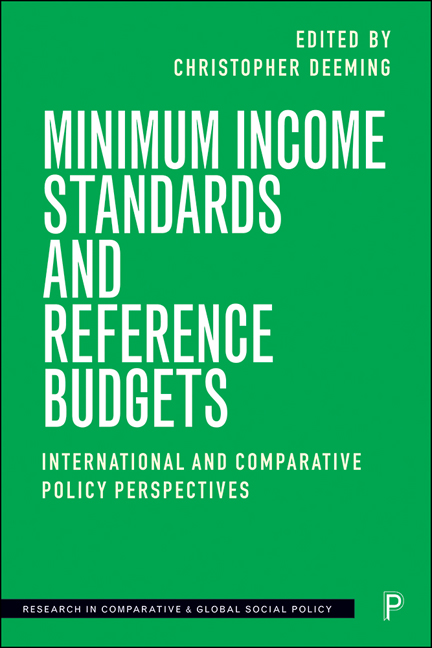17 - Applying the Minimum Income Standard in Diverse National Contexts
Published online by Cambridge University Press: 12 March 2021
Summary
Introduction
The Minimum Income Standard (MIS) approach was developed in the UK (Davis et al, 2018a), as a way of researching and establishing what is required for a minimum socially acceptable standard of living, both in terms of the goods and services which comprise a minimum ‘basket’ and the income needed to provide this. For a decade (Davis et al, 2018b), annual MIS updates have captured and reported public consensus about minimum living standards, establishing a publicly defined threshold – or standard – below which it is agreed that individuals and households would not be able to meet all of their minimum needs (Stone et al, 2019). This consensual budget standard approach is built on the premise that minimum living standards are socially and culturally specific (Walker, 1987; cf. Townsend, 1979), and that the definition and description of what constitutes a minimum living standard should privilege public consensus rather than the assessments or opinions of experts, policy makers or government (Davis et al, 2018a).
Alongside its development in the UK, the MIS approach has to date been applied in eight other countries. In France (Gilles et al, 2014; Gelot, 2016), Ireland (Mac Mahon et al, 2018), Japan (Davis et al, 2012) and Portugal (Ferreira Correia, 2016) the MIS approach has been adopted and applied in order to establish a minimum standard of living for a wide range of individuals and households types. It has been applied to establish the needs of specific demographic groups in Thailand (families with young children) and Singapore (older people). Two other countries – Mexico (Valadez-Martínez et al, 2017 and South Africa (Byaruhanga et al, 2017) – have run pilot MIS studies to establish whether it is possible to reach public consensus about minimum living standards in unequal and divided countries, and in Mexico a full study is now underway. The experience of disseminating the MIS approach across these countries has been that, following Townsend (1979) and Walker (1987), each conceives of and describes a minimum in a way that reflects the values, norms, characteristics and priorities of its own society.
- Type
- Chapter
- Information
- Minimum Income Standards and Reference BudgetsInternational and Comparative Policy Perspectives, pp. 241 - 254Publisher: Bristol University PressPrint publication year: 2020



